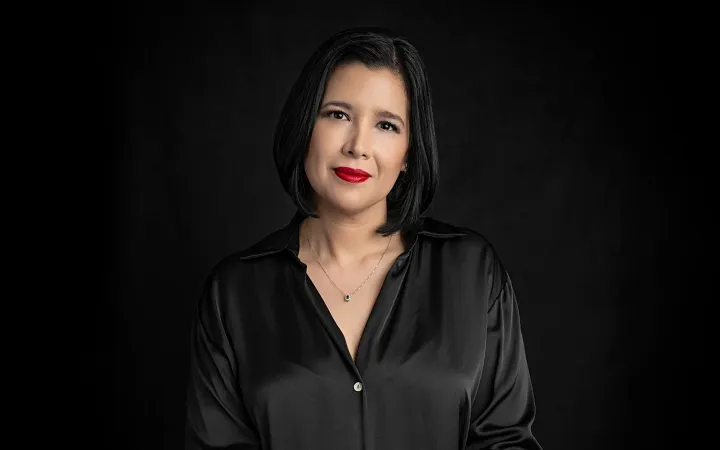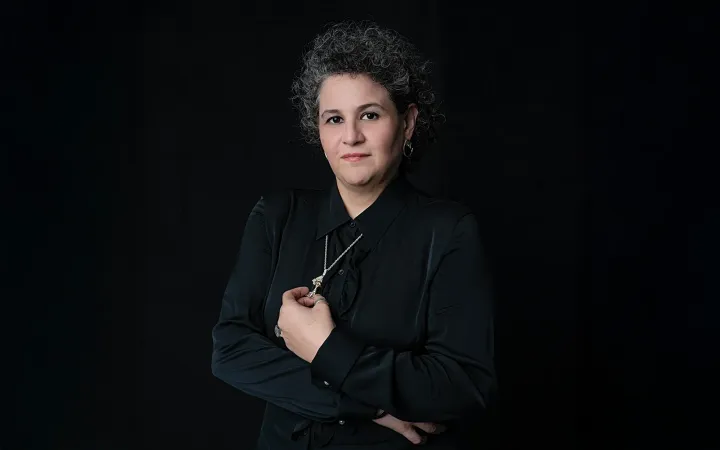Por María Elena Esparza Guevara, fundadora de Ola Violeta AC y Consejera en Género del Consejo Ciudadano de la CDMX. Doctoranda en Historia del Pensamiento en la UP, Maestra en Desarrollo Humano por la Ibero y egresada del Programa de Liderazgo de Mujeres en la Universidad de Oxford.

“Hubiera preferido que mi esposo me golpeara, así nadie dudaría de mi dolor”. Esta frase regresa a mí en el día y en la noche; me la dijo una víctima de violencia psicológica hace algunos días y el alma se me congeló.
Vivimos en un país donde siete de cada diez mujeres mayores de 15 años han sufrido al menos una situación de violencia de género, de acuerdo a la más reciente edición de la Encuesta Nacional sobre la Dinámica de las Relaciones en los Hogares, presentada el año pasado por el Inegi. Son —somos— treinta y cinco millones cuatrocientas mil mujeres, pero si vemos los datos de carpetas judicializadas e incluso llamadas de emergencia, los números ni se acercan a representar el drama de esta realidad.
¿Qué lo explica? Una de las variables es el silencio que atraviesa los mandatos de género asignados a las mujeres, del calladita te ves más bonita al mejor no digas nada porque van a creer que estás loca. Hay estudios lingüísticos realizados durante la última década en España, Inglaterra, Estados Unidos y México en los cuales, por primera vez, se introduce la perspectiva de género para llegar a una conclusión recurrente: desde niñas aprendemos a hablar poco y rápido cuando hay varones para no ocupar su tiempo.
El problema es que este no es un asunto limitado a lo conversacional o de convivencia social. Las palabras no pronunciadas pesan, casi tanto como los sentimientos que entierra el temor a los juicios y prejuicios sociales. A una mujer violentada le cuesta mucho ganar confianza —en sí misma y en su entorno— para hablar de las agresiones que pueden llegar a neutralizarla hasta convertirla en víctima de lo que llamo feminicidio emocional, tema de mi investigación doctoral.
En este contexto, es posible dimensionar la relevancia de la campaña #YaNoMás #Háblalo, que ha lanzado Opinión 51 en alianza con el Consejo Ciudadano para la Seguridad y Justicia de la Ciudad de México y Grupo IMU para visibilizar uno de los centros simbólicos de la normalización de la violencia.
El silencio sí tiene sonido, no sólo en la famosa canción de Simon & Garfunkel, sino en la vida cotidiana. Se escucha como las carcajadas tras una broma hiriente, los gritos de un celoso o los golpes a ocultar con maquillaje; lo impregna todo con la pesadez del secreto a voces en cualquiera de los cinco tipos que reconoce la Ley General de Acceso de las Mujeres a una Vida Libre de Violencia: psicológica, física, patrimonial, económica y sexual.
¡Hablemos, acompañémonos! Si tú o alguien que conoces sufre violencia y no sabe por dónde empezar, recomiendale que contacte la Línea de Seguridad o Chat de Confianza del Consejo Ciudadano; el servicio de apoyo jurídico y psicológico con perspectiva de género está disponible a través del 55 5533 5533 para todo el país, 24/7 y además es confidencial.
Incentivar confianza para que una víctima pueda expresarse es responsabilidad de todas y todos. Cuando veas los carteles de la campaña, escanea el código QR para escuchar nuestras historias, quizá te sorprenda saber que no estás sola.
Las opiniones expresadas son responsabilidad de sus autoras y son absolutamente independientes a la postura y línea editorial de Opinión 51.
Más de 150 opiniones a través de 100 columnistas te esperan por menos de un libro al mes. Suscríbete a Opinión 51.






Comments ()